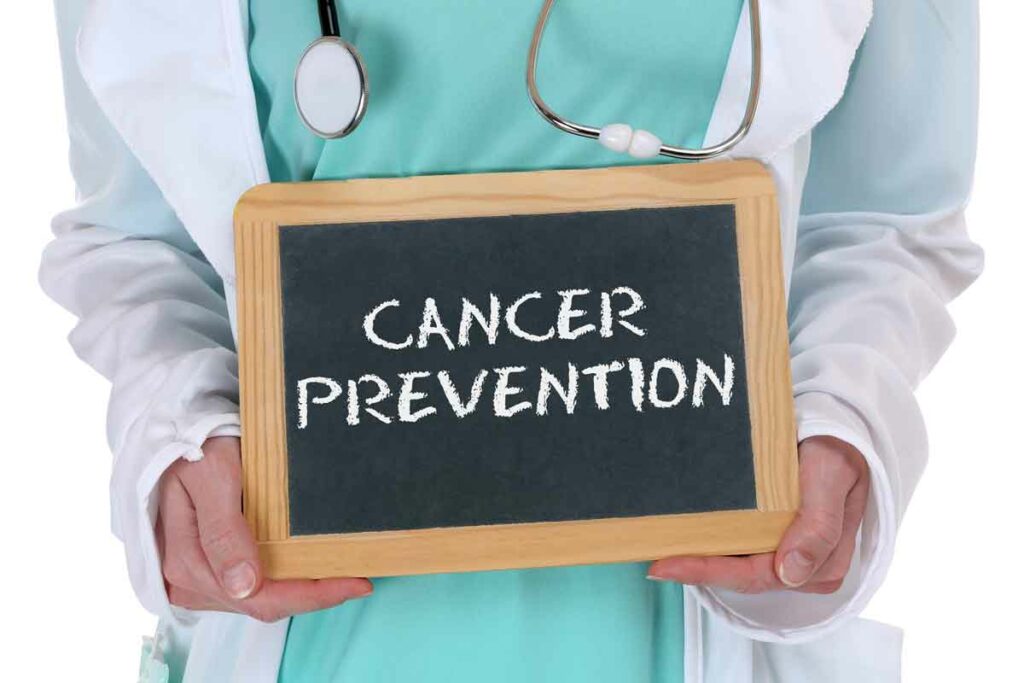Cancer prevention is a complex interplay of genetic, lifestyle, and environmental factors, making it challenging to pinpoint the exact cause of cancer in one individual over another. Nonetheless, research has shed light on specific risk factors that can increase the likelihood of developing cancer. To mitigate these risks, here are ten effective strategies for reducing your chances of cancer:
1. Quit Smoking
The foremost step in cancer prevention is quitting smoking. Smoking is the primary risk factor for lung cancer and contributes to other forms of cancer, including mouth, throat, cervical, and bladder cancer. Remarkably, your body starts to recover within minutes of quitting, and the risk of many cancers is halved five years post-quitting. Consult with your healthcare provider for guidance on smoking cessation methods.
2. Avoid Secondhand Smoke
Did you know that secondhand smoke can also cause lung cancer in adults who have never smoked? Take measures to avoid exposure to secondhand smoke, and if you live with a smoker, encourage them to quit for the benefit of all.
3. Embrace Physical Activity
Physical activity significantly reduces the risk of various cancers, such as breast and colon cancer. It’s recommended that adults aim for at least 150 minutes of moderate-intensity exercise each week, while children and teens should engage in at least 1 hour of moderate-intensity activity weekly. Moderate activities include walking, playing golf, practicing yoga, and even mowing the lawn.
4. Cultivate a Plant-Based Diet
Improving dietary choices is pivotal in maintaining overall health and mitigating cancer risks. Prioritize a balanced diet with an emphasis on plant-based foods. Aim to consume at least 2½ cups of vegetables and fruits daily and reduce your intake of processed meats like hot dogs and deli meats. When opting for meat, choose lean beef, poultry, or fish cuts.
5. Moderation in Alcohol Consumption
Excessive alcohol consumption raises the risk of several cancers, including breast, throat, liver, and colorectal. Limit your alcohol intake; it’s advisable for women to have no more than one drink a day and for men, no more than two drinks a day.
6. Maintain a Healthy Weight
Excess weight around your midsection can heighten the risk of various cancers, including breast and colon cancer, and other health conditions like diabetes and heart disease. Assess your Body Mass Index online to determine if you fall within a healthy weight range.
7. Reduce Prolonged Sitting
Recent studies reveal that individuals who spend most of their day sitting are more susceptible to developing colon and endometrial cancer. Counter this risk by standing up and walking around every two hours, and consider using a smartphone app as a reminder.
8. Sun Protection
Protect your skin from the harmful effects of ultraviolet rays from the sun, sunlamps, and tanning beds, all of which can lead to skin damage and skin cancer. Always apply sunscreen with an SPF of at least 15 (some experts recommend SPF 30) when in the sun. Additionally, don sun-protective clothing, hats, and sunglasses to safeguard your skin.
9. Vaccination
Scientists have developed vaccines that guard against viruses such as HPV, which are known to cause cancer. It is recommended that both boys and girls receive the HPV vaccine at age 11 or 12.
10. Regular Screening
Routine medical care is among the most effective methods for lowering your cancer risk. Be sure to undergo regular check-ups and consult your primary care physician regarding necessary screening tests. Depending on your age and risk factors, your doctor may recommend:
- Colonoscopy starting at age 45 for colorectal cancer screening.
- Mammograms begin at age 50 for women.
- Discussion about prostate cancer screening for men who turn 50.
- CT scan for lung cancer if you’re a smoker or ex-smoker.
- Annual dermatologist appointments to thoroughly examine your skin for unusual spots or moles that could indicate skin cancer.
Implementing these strategies in your life can significantly contribute to cancer prevention and overall well-being.
